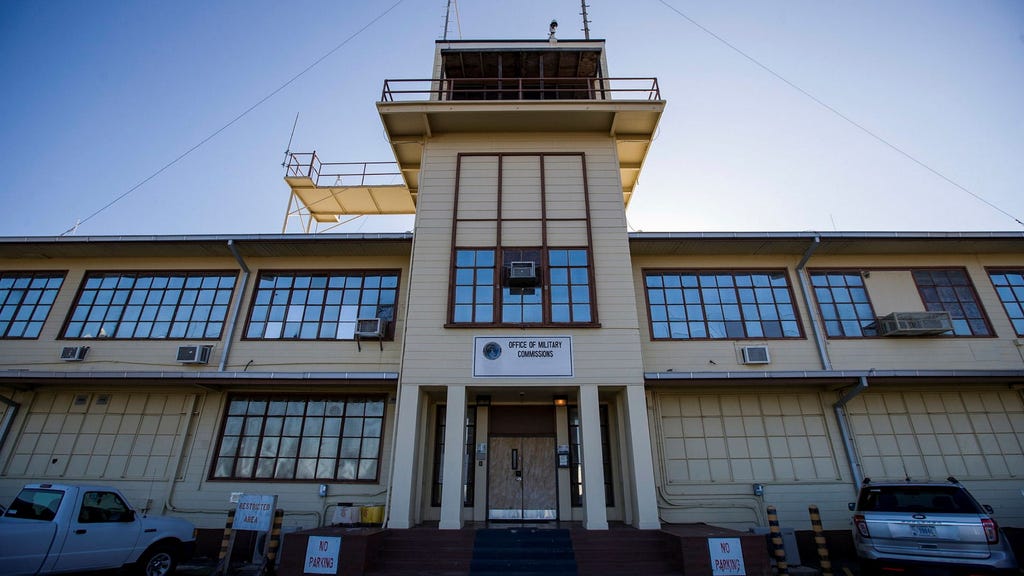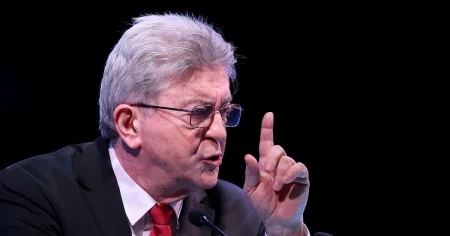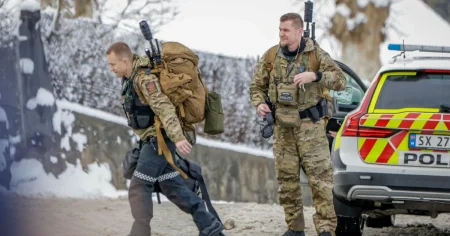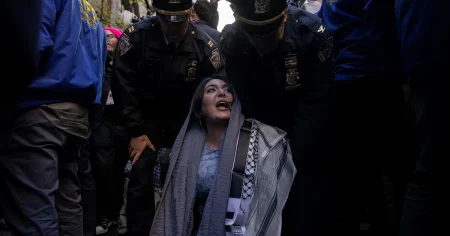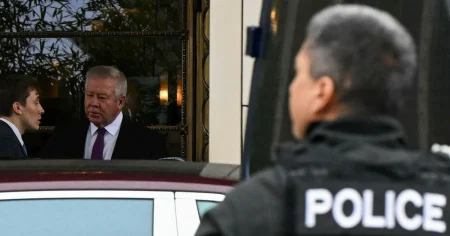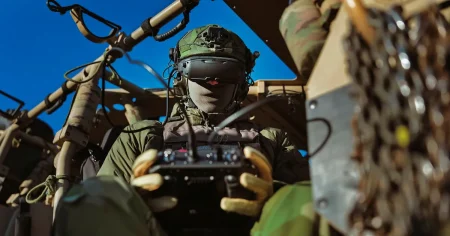The protracted legal saga surrounding the Guantanamo Bay detainees took a significant turn this summer, culminating in a plea agreement reached after over two years of arduous negotiations between military and defense prosecutors. This agreement centered on Khalid Sheikh Mohammed, the alleged mastermind behind the devastating 9/11 attacks that claimed the lives of nearly 3,000 Americans, and his co-conspirators. The deal stipulated that they would plead guilty in exchange for life imprisonment, thereby avoiding the death penalty. While the US government sanctioned the agreement, Secretary of Defense Lloyd Austin expressed strong disapproval, arguing that the gravity of the crimes warranted his personal review and potential veto of the deal. However, a recent court ruling has rejected Austin’s assertion of authority, reaffirming the validity of the plea agreement. Austin has yet to publicly respond to the ruling, leaving open the question of whether he will pursue an appeal.
The plea agreement offers a potential resolution to a complex and controversial legal battle that has stretched over a decade. Pre-trial hearings have dragged on for years, hampered by defense arguments that the evidence against the detainees has been compromised by their alleged torture at the hands of the CIA. Supporters of the agreement view it as a pragmatic step towards closure, acknowledging the logistical and legal challenges posed by the prolonged detention and prosecution of the accused. They argue that continued pursuit of the death penalty could further entangle the case in legal complexities and delays, potentially prolonging the ordeal for the victims’ families and the nation. The agreement, while not ideal, offers a tangible path towards accountability and a semblance of finality for all involved.
Guantanamo Bay, the controversial detention facility established in the wake of the 9/11 attacks, has been a lightning rod for international criticism. Human rights organizations have consistently condemned the facility, citing allegations of torture, indefinite detention, and violations of due process. Its continued operation remains a source of contention and a symbol of the ethical dilemmas inherent in the ”war on terror.” Over the years, the number of detainees has drastically dwindled from its peak of nearly 700 to a mere 26 individuals. This decline reflects a gradual shift in US policy and a growing recognition of the legal and humanitarian challenges posed by indefinite detention without trial.
The plea agreement in the 9/11 case is just one piece of the complex puzzle surrounding the future of Guantanamo. While it may offer a path to closure for this particular case, the larger questions about the facility’s future and the fate of the remaining detainees persist. The recent repatriation of a Tunisian detainee after 12 years of confinement underscores the ongoing efforts to find solutions for individuals deemed no longer a threat to national security. This individual’s release, delayed for a decade despite government approval, highlights the bureaucratic and political hurdles that often impede the transfer or release of detainees, even when their continued detention lacks clear justification.
The vast majority of the remaining Guantanamo detainees are not currently involved in active investigations. Only seven individuals are subjects of ongoing investigations, while two have already been convicted by military commissions. Fourteen more are awaiting transfer after being cleared for release by authorities, a process that often involves complex negotiations with other countries willing to accept them. These cases highlight the ongoing challenges of finding appropriate resolutions for individuals held in indefinite detention, particularly when their home countries are unwilling or unable to receive them. The future of these detainees remains uncertain, caught in a legal and political limbo that underscores the enduring legacy of Guantanamo.
The plea agreement with Khalid Sheikh Mohammed and his co-conspirators signifies a potential turning point in the long and contentious history of Guantanamo Bay. While it provides a pathway to resolve the legal proceedings related to the 9/11 attacks, it also underscores the complexities and controversies that continue to surround the detention facility. The ongoing debate over its future, coupled with the uncertain fate of the remaining detainees, highlights the enduring challenges faced by the US in balancing national security concerns with human rights obligations and the rule of law. The plea agreement, while a significant development, is but one step in a long and unfinished journey towards achieving justice and accountability for the victims of 9/11 and addressing the broader legacy of Guantanamo.





